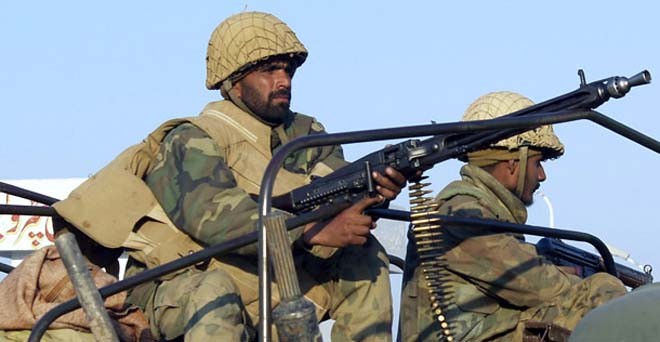
Armed forces effectively represent the state of Pakistan. Or do they?

This perhaps is the trickiest and the most crucial of things that needs to be straightened in our polity. An outsider could not be blamed for thinking our political system as one where the civilian and the military governments take turns -- for roughly ten year periods each. An astute observer might conclude the weak civilian institutions and setups are more a symptom of an overarching military rather than a cause of the huge military interference.
Ask a man in the street in the biggest province and he is likely to tell you only a military dictator can solve Pakistan’s problems. A Kemalist revolution preferably with an Ataturk is what you get to hear as the solution when the view in the street is more nuanced.
Military has the "organisation, discipline, and skills" to rule that the unruly civilians lack. That certainly is the military’s viewpoint if not the general sense among the people.
Try telling the man on the street that we’ve been there and done that before and you will be disappointed; because they still have hopes.
The military, too, has high hopes in its own ability to govern. Long before that it thinks of itself as the rightful custodian and upholder of ‘national interest’.
So, how to attain that perfect democratic civil-military balance that shall take the country forward? As long as the military remains the de facto power wielder in this polity, no matter what you write in the constitution will not change things on the ground.
We see a visible manifestation of this each time a democratically elected set-up is put in place. The forces want to hold on to the control of country’s defence policy which then is linked with its foreign and economic policies. It is the army’s prerogative to deal with insurgencies within (Balochistan and Sindh) and the enemies without. Control over the electronic media is now an additional role, by extension.
Armed forces effectively represent the state of Pakistan. Or do they? Are they going through a transformative phase as is being suggested by some quarters or is it just not the right time to make a coup?
Truth of the matter is that in each political crisis, the political forces look up to the armed forces as mediators (umpires in the most recent case) when many already believe they initiated the crisis. The ISPR press releases (now tweets) have weakened rather than strengthened the civilian forces and limited their ability to govern.
Academics have come to the conclusion that only sustained democracy is going to lead us to desirable civil military relations but not without placing a qualifier. Without going into the details of why a qualifier is required in the first place, let it be stated that this sustained democracy is dependent on "civilian unity" and "loyalty to democratic rule".